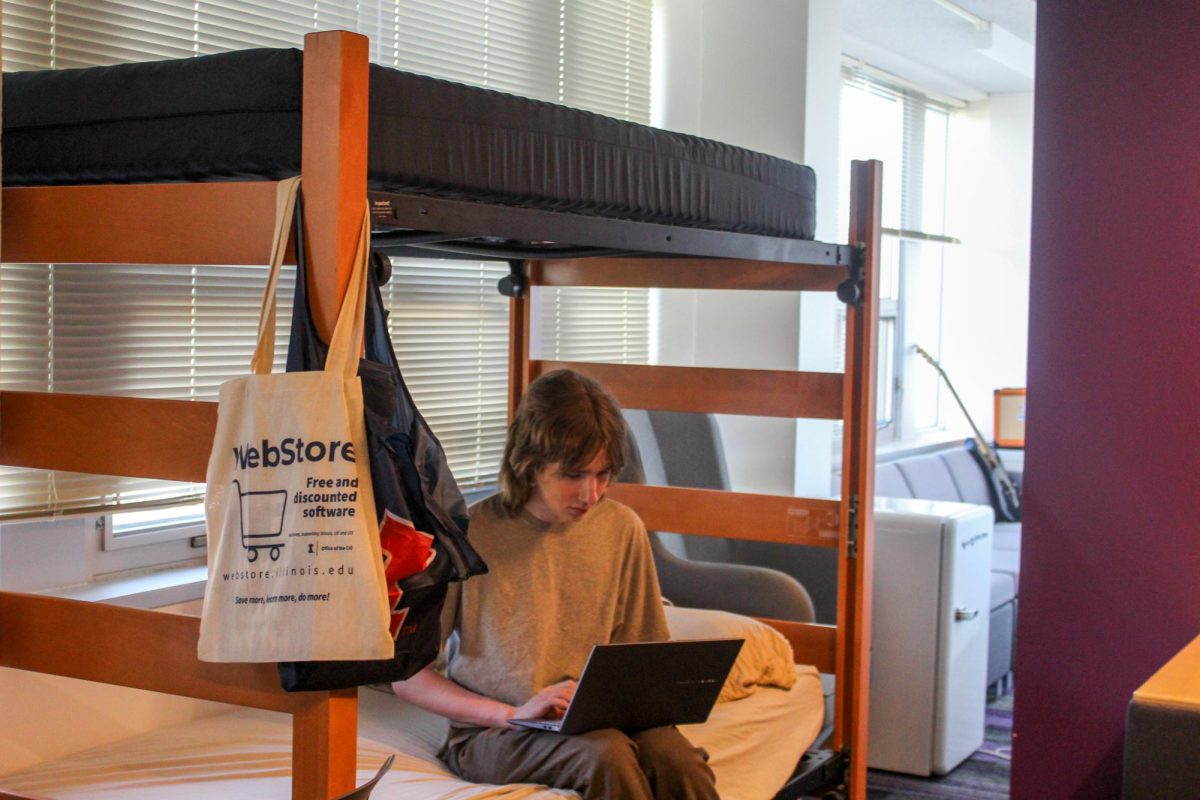Last updated on Feb. 12, 2024 at 08:59 p.m.
The University, under the guidance of the Illinois Climate Action Plan and recent state sustainability legislation, has awarded over 30 buildings with a Leadership in Energy and Environmental Design certification.
LEED certifications, pioneered by the U.S. Green Building Council, are given on a voluntary basis to buildings that undergo assessment for sustainability criteria. The certifications aim to exemplify the University’s commitment to environmentally-friendly performance.
As of 2023, the University features 32 certified projects, with more awaiting evaluation. Townsend, Nugent and Lincoln halls are just a few of the student housing locations that boast a LEED certification.
Steven Breitwieser, manager of communications and external relations for Facilities & Services, said that obtaining a LEED certification requires extensive inspection and preparation.
Get The Daily Illini in your inbox!
“Each project striving to achieve LEED certification applies to the U.S. Green Building Council and undergoes a comprehensive design and technical review to acquire points and credits,” Breitwieser stated in an email statement.
LEED evaluations on campus are completed by a team of engineers, architects and designers who examine the buildings’ construction and performance as a local space. The team also evaluates how the buildings’ operations are performing in waste disposal and reducing emissions.
The four levels of LEED certifications are given based on point totals, with certified being the lowest when the building has earned 40 to 49 points. The highest ranking, platinum, means that the building has earned more than 80 points.
Excluding sustainable efforts on campus, the state of Illinois continues to focus efforts on expanding the accessibility of environmentally friendly power to every community. For example, the Illinois Solar for All Program, first established in 2017, provides individuals who make an income 80% or less of the area median income with no-cost solar panel installation. The program also extends, with different qualifications, to public facilities and nonprofit organizations.
Solar panels are meant to both cut costs for homeowners and make a positive impact on the environment. Illinois now ranks eighth nationally in terms of the use of solar energy and, as of 2023, has installed enough panels to over 375,000 homes.
Breitwieser says Illinois continues to be a trailblazer in sustainable construction by requiring LEED Silver certifications for new construction.
“Illinois is a national leader in sustainable building design by requiring that new buildings and major renovations constructed on campus meet strong performance standards and are LEED Silver certified at a minimum,” Breitwieser stated.
The requirement stems from the Illinois’ Climate Action Plan, which Breitwieser says is how the University hopes to achieve carbon neutrality and combat climate change.
“The Illinois Climate Action Plan (iCAP) is the university’s strategic plan to meet the Climate Leadership Commitments, including being carbon neutral as soon as possible and building resilience to climate change in the local community,” Breitwieser stated.







